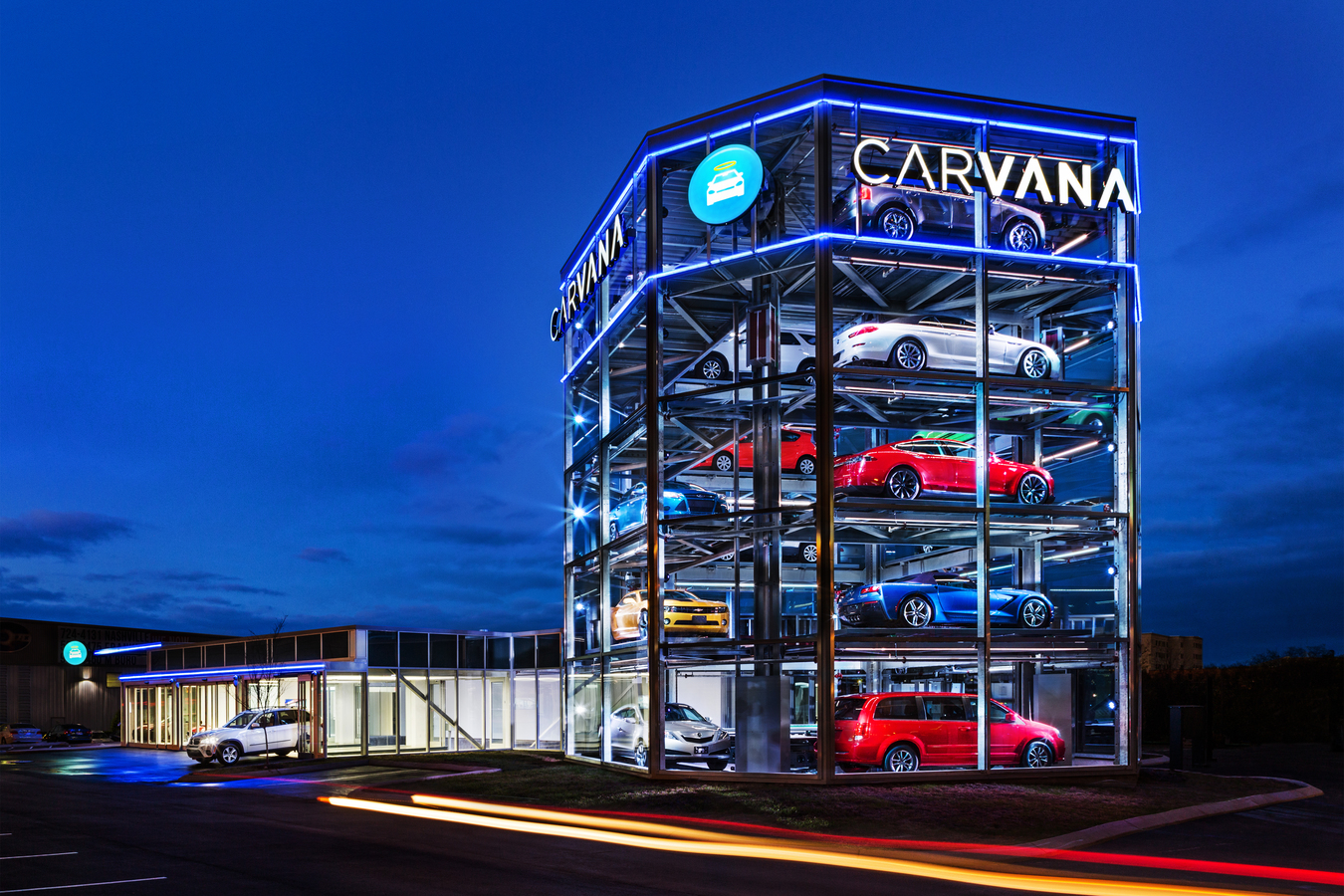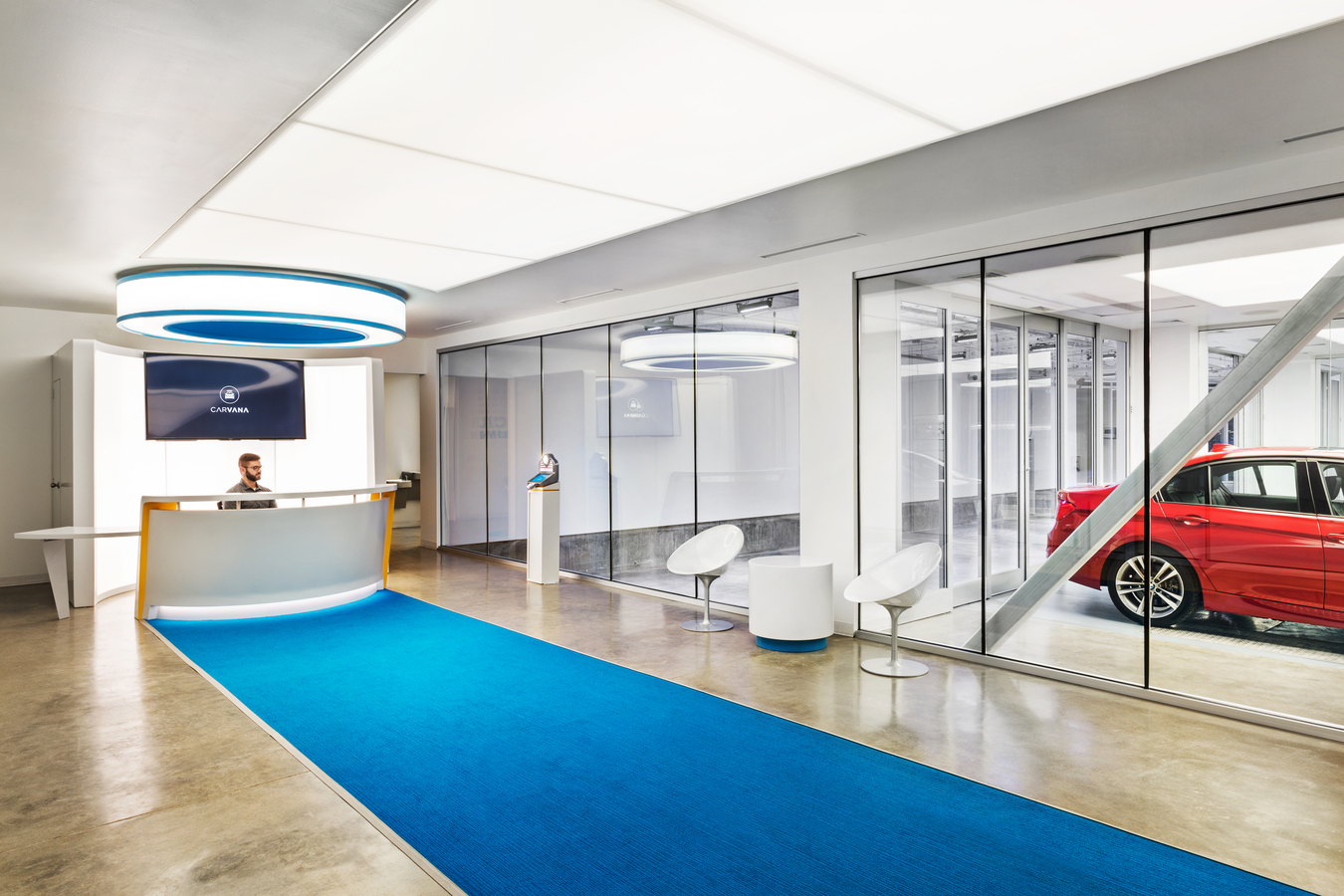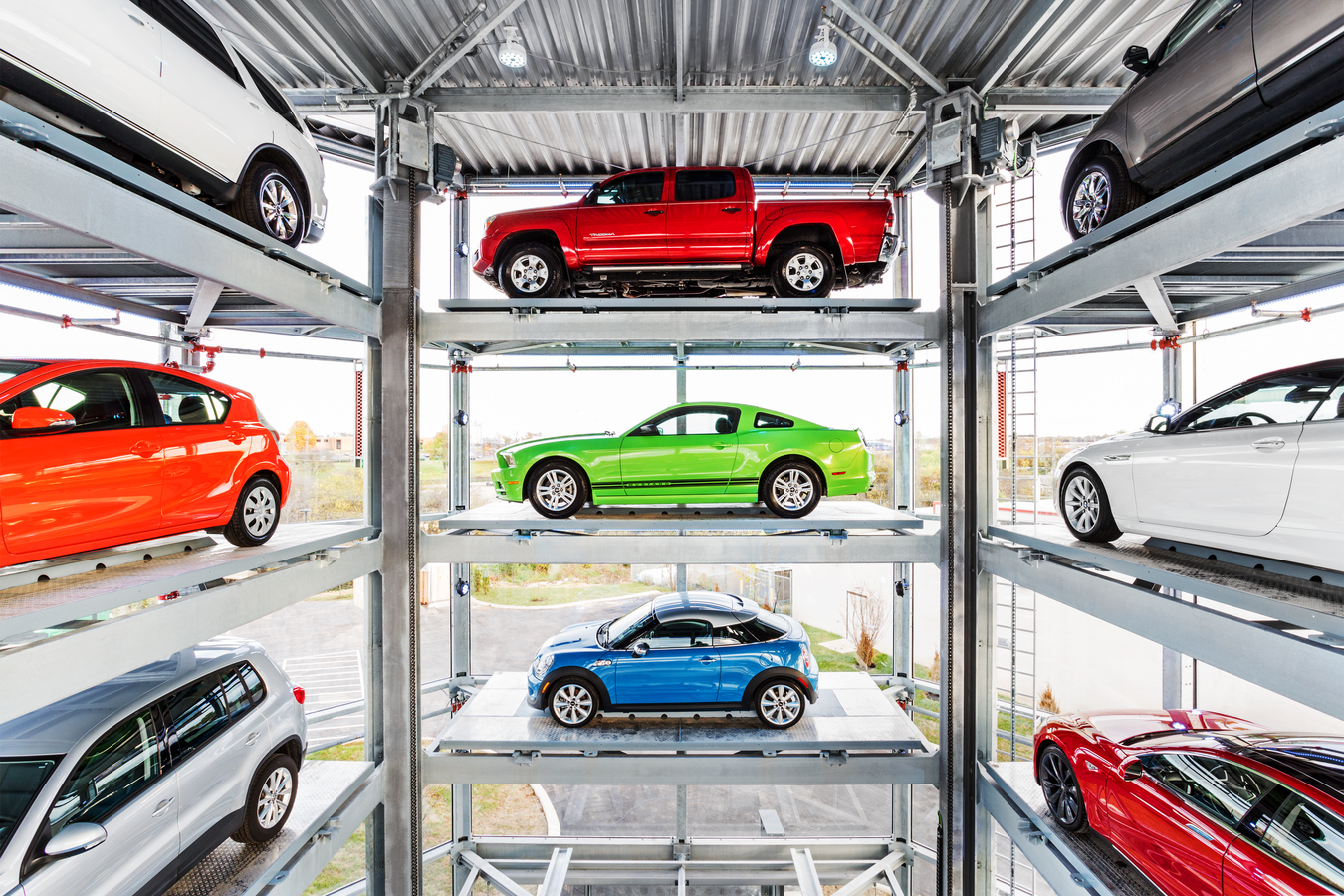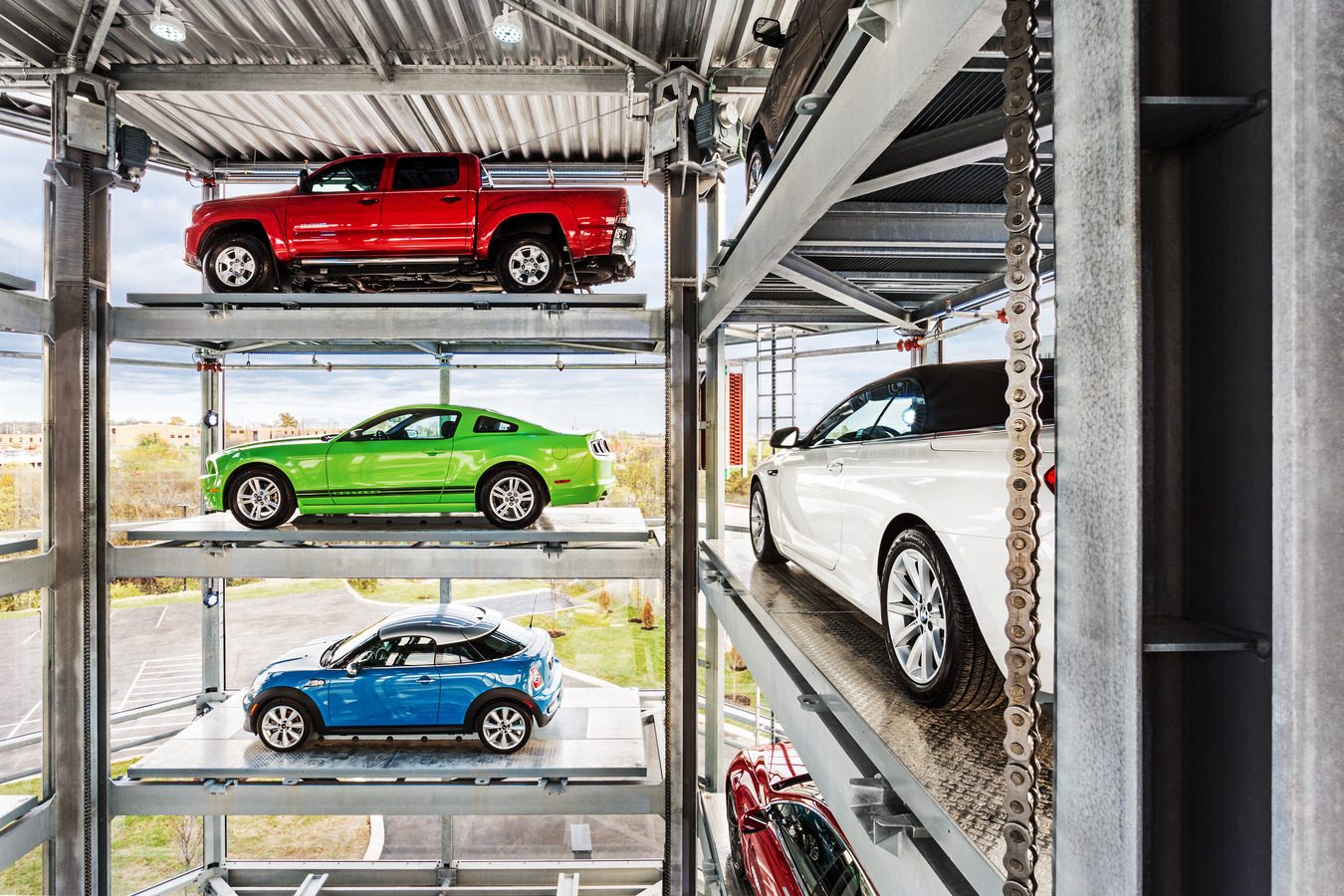Let’s face it — nobody really likes buying cars. We like driving them, we like showing them off, and we certainly like talking about them, but filling out paperwork and haggling over prices at the dealership is at the very least a drag. What if buying a car were as convenient as picking up a can of soda?
We inched closer to that reality today with the launch of the first-ever automated, coin-operated car vending machine in Tennessee. It’s the brainchild of online auto retailer Carvana, who looks to simplify the vehicle purchasing process as much as possible while adding a truly unique delivery experience.
“Carvana created the original car vending machine concept in Atlanta in 2014, and we’ve spent the last year taking this experience to a whole new level,” said Ernie Garcia, CEO of Carvana. “Our new vending machine is a state-of-the-art, multi-story structure that delivers our customers’ cars by merely inserting a custom coin. Carvana’s mission is to create a better way to by a car, and this new vending machine will be a one-of-a-kind experience that mirrors just how simple and easy we’ve made it to buy a car online.”
As life events go, purchasing a vehicle is slightly more significant than opening a bag of pretzels, so the Carvana process involves a bit more than putting a coin in a slot. Buyers must still purchase their car online — a service Carvana has offered since 2013 — and then they travel to the pickup site in Nashville. Once there, they’re met by a five-story glass structure that holds 20 cars, three customer delivery bays, and a welcome center.
Since the work has already been done on the Web, all the customer has to do is select their name from a kiosk and insert a special Carvana-branded coin into the appropriate slot. Like a larger-than-life carnival attraction, the tower springs to life and automatically shuttles the car down to the ground-level delivery bay, where Carvana employees are available for help if needed. Presumably, they’re also trained to keep people from rocking the tower to get another car.
The company says more vending machines are on the way, but if you can’t wait, Carvana will subsidize $200 in airfare and arrange white glove transportation from the Nashville airport if you live outside of Tennessee. You don’t get that with your M&Ms.











